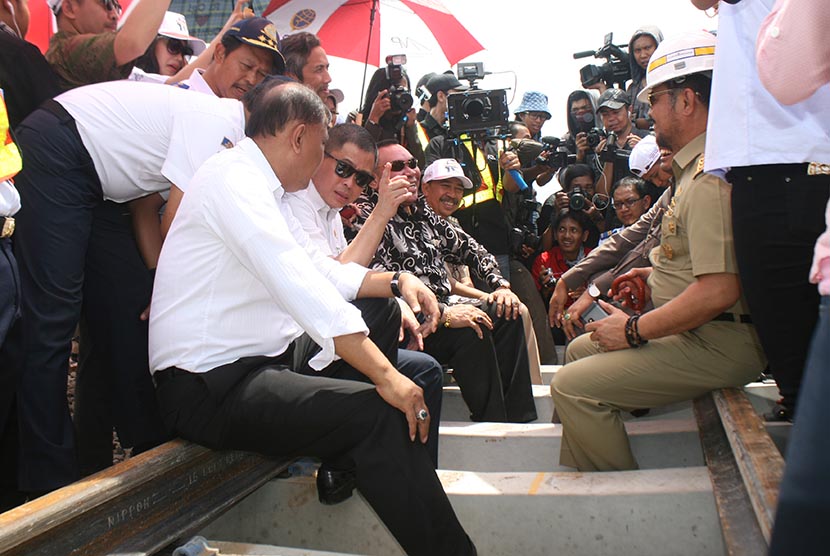REPUBLIKA.CO.ID, JAKARTA -- The Transportation Ministry will monitor developments in transportation fares and connectivity closely in view of an expected growth in inflation in 2016, a cabinet minister said.
"We at the Ministry of Transportation see inflation impacting public transportation fares and connectivity," stated Transportation Minister, Ignasius Jonan, on Wednesday.
He said his ministry will firmly implement regulations regarding transportation fares because a spike in transportation costs will have considerable impact on goods' prices.
Ignasius made the statement during a meeting on inflation control with five other ministers and representatives of two government agencies.
He further said inflation would impact goods' prices significantly unless it is controlled.
"Transportation fares have upper and lower rate limits. Fares may not exceed the upper limit," he added.
Regulations for the upper and lower limits of transportation fares are imposed to prevent public transportation owners from raising their fares at will. If they raise the fare tariffs and exceed the upper limit, they will be sanctioned.
"We will take actions against public transportation vehicles, which have raised fares exceeding the upper limit," the minister stressed.
Five ministers of the working cabinet gathered at Bank Indonesia's offices on Wednesday to discuss the projected inflation in 2015 and the future challenges in 2016.
The meeting was attended by the Coordinating Minister for Economic Affairs, Darmin Nasution, Finance Minister, Bambang Brodjonegoro, Trade Minister, Thomas Lembong, Home Affairs Minister, Tjahjo Kumolo, Transportation Minister, Ignasius Jonan, and State Logistics Agency (Bulog) President Director, Djarot Kusumayakti.
"The projected inflation until the end of December can be maintained. The inflation will stand at 3 percent," Nasution stated on Wednesday.
Meanwhile, Finance Minister Brodjonegoro noted that a discussion on economy, food prices, transportation fare, exchange rate, and other areas was held during the meeting.
With regards to macro assumptions in the 2016 State Budget, he remarked that Indonesia's inflation was pegged at 4.7 percent.
"I am optimistic that the target can be maintained," the minister stated.
He also predicted that annual inflation would stand between 2.9 and 3 percent.
"Volatility in food prices will have the greatest influence on the 2016 inflation rate," the minister emphasized.
Earlier, the Central Statistics Agency (BPS) had said it was possible to achieve Bank Indonesia's 4 percent inflation target, give or take 1 percent, for 2015, citing that inflation had reached 2 percent during the January to September period.
"I think it will be achieved. At the end of September, the inflation rate had reached 2.24 percent. We still have three months left," BPS Deputy Chief for Distribution and Service Statistics, Sasmito Hadi Wibowo said on Thursday.
He noted that a possibility still existed for the country to record a deflation in October. However, infrastructure development may lead to an increase in the inflation rate, although the hike would be relatively small.
"Based on the wholesale price index (IHPB), the construction index has risen significantly. The index will continue to rise and have an impact on household goods, such as cement. This will likely make it difficult for the country to record a deflation. I think there will be inflation, albeit relatively small," he explained.
The IHPB for building and construction materials rose 0.15 percent in September from a month earlier, driven by an increase in the prices of water tanks at 0.97 percent, air conditioners at 0.96 percent, electrical apparatuses at 0.74 percent, and sand at 0.65 percent, he remarked.
The IHPB for raw materials, consumer goods, and capital goods rose by 0.87 percent, 2.89 percent, and 0.58 percent, respectively in August 2015, Sasmito stated.
With inflation being kept under check and productivity increasing, economic growth in the third quarter will be higher than the second quarter, he added.


